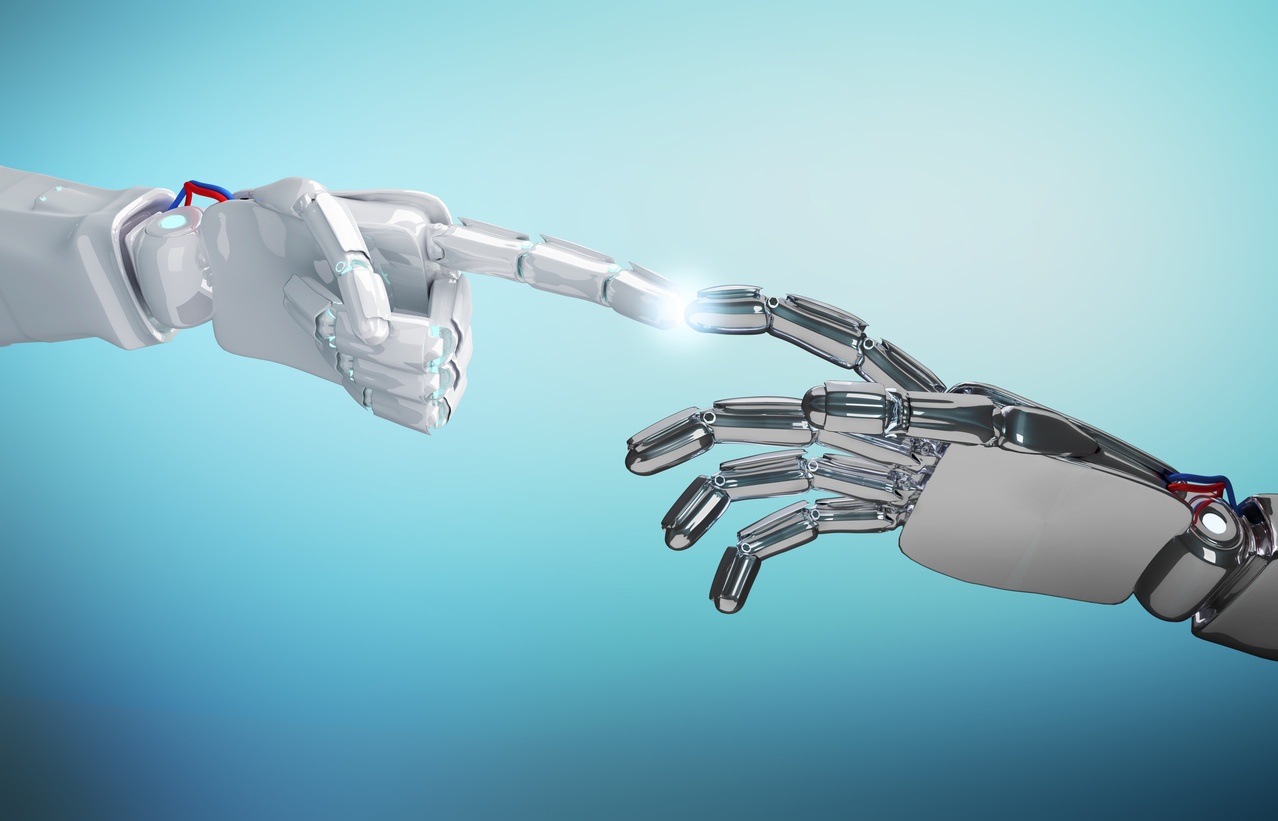According to a recent article in Forbes, 84 percent of all business respondents say AI will enable them to obtain or sustain a competitive advantage. Around 83 percent believe AI is a strategic priority for their businesses today. Over 80 percent – that leaves less than 20 percent of businesses not seeing the inherent value automation and AI can bring to their business. In many ways, the robot revolution is already well and truly on its way – at least in the world of business.
Admittedly, we aren’t exactly at the “robot servant” level just yet. Businesses can’t rush out and automate every aspect of business and expect to succeed. But that doesn’t mean that AI isn’t already revolutionizing the future of business; we’re seeing it in action every single day.
From automating simple tasks to streamlining workflows, AI can and will change the future of business along the way. To see exactly how business is changing, we turned to the same MIT Sloan Management Review study mentioned in the Forbes article. What we found is both surprising and unsurprising.
Increasingly High Levels of Adaptation
Although it might seem a bit over-simplistic, the biggest shift we see coming for automation and AI in business is increasing adaptation of automation. The study mentioned in Forbes highlighted that just 23 percent of respondents have already incorporated AI-driven processes or automation, but 23 percent were also currently ramping up or testing it out.
Just 22 percent of all people surveyed reported that they had absolutely no plans to integrate AI or automation into their business. Some of this may be simply a result of industries that don’t directly benefit from automation (e.g., handcrafted goods).
The rest of surveyants either reported an open mind to AI or automation in the future or were curious about further investigation into its use.
Greater Divide Between Pioneers, Investigators, Experimenters, Passives
Something else noticed in the survey results was an increasing divide in adaptation by pioneers, investigators, experimenters, and passives. Pioneers refers to bleeding-edge organizations who are already adopting AI and/or automation, while investigators are currently looking into automation for AI for future use. Investigators understood AI, but refused to adopt or deploy it beyond initial investigation. Experimenters made up the last group – these were organizations who were adopting AI without truly understanding it as a technology. Passives, of course, are organizations who show little to no interest in AI or automation and/or do not understand or relate to it.
Broken down into these categories, respondents fell into these numbers:
- Pioneers: 19 percent
- Investigators: 32 percent
- Experimenters: 13 percent
- Passives: 36 percent
Surprisingly, passives made up the largest group here. This tells us that many businesses still lack the practical knowledge needed to properly implement AI and automation. However, the fact that 32 percent fell into the Investigators category also reveals that when businesses have that knowledge, they are highly likely to adapt into their daily business. The fact that pioneers made up just 19 percent is reflective a lack of talent but willingness to engage.
AI Utilization in New, Innovative Areas
We’re already seeing AI and automation integration in business management software, checkout lines, production facilities and more, but integration opportunities will likely expand dramatically in the coming years. Rather than just handling menial jobs, AI may be used to extend the capabilities of human staff or streamline the work they do with less effort. It may also be used to create entirely new jobs or tasks altogether.
McKinsey suggests that around 50 percent of all current jobs have the potential to be automated or otherwise taken over by AI. This progress will occur over a number of years, gradually changing the entire workforce. Some people see this as “doom and gloom,” but people said the same thing about the Industrial Revolution. Realistically, automation will most likely create new jobs – many of them in tech – that capitalize on skill rather than sheer manual power.
Businesses are also using their own integrated AI and automation in new and exciting ways, sometimes even innovating AI as a whole to better suit it their business. The result of this shift, of course, is a much more rapid progression in the evolution of AI/automation technology.
More AI-Led Customer-Facing Activities
Most studies show that customer-facing activities will be the most affected by automation out of all areas of business over the next decade. This includes areas of business like IT, customer management, sales, customer relationships, supply chain efficiency, order management, and business analysis – most of the tasks currently handled by Enterprise Resource Management (ERP) and Business Management Software (BMS).
This shift isn’t really surprising, but what is surprising is how companies who produce AI and automation are working to make these solutions more scalable. In five years, it’s very possible that most customer-facing activities will be handled by automation or AI in virtually every level of business. This ability to support scaling as the business grows will help smaller startup get a foot in the door for faster growth without sacrificing enterprise client needs.
Competitiveness Boosted by AI Utilization
Automation and AI will also likely change how, when, and why businesses are ranked as competitive. Around 84 percent of all respondents in the aforementioned survey reported feeling that AI will specifically and directly aid them in gaining a competitive edge. This shift in perspective occurs for two reasons: businesses see other organizations succeeding through automation, but pioneers and investigators see the value of AI plainly.
Around 75 percent of all respondents also indicated that they felt AI will open up new business ventures, allowing for easier market adaptation. That’s a critical evolution and success factor, but will also greatly expand the business world in general. Expect new jobs, lowered costs of doing business, and lowered costs to innovate and enter business in the first place.
Increased AI Delegation of Boring Jobs
Let’s face it: no one likes to come into work only to toil away answering emails or handling other menial tasks. Work environments succeed when they automate these tasks and allow employees to focus on further innovation and creativity. Unfortunately, up until now, that’s been essentially impossible because humans had to handle these menial tasks.
AI and automation will change that necessity even further, allowing organizations to “set it and forget it” while staff members focus on more inspiring work. This essentially strips the boredom out of work, improving job culture.
Automation also has other extended benefits to businesses.It eliminates the risk of user error due to lack of attention or focus, improving performance. Work becomes easier, and humans feel more valued for skills rather than just being button-pushers. The business’s success is just a natural result of that process.
Again here, we saw the same improvement at around the start of the Industrial Revolution. Machines meant workers had an easier time working, so conditions and engagement improved. This is simply the “next logical step.”
The wrap-up here is that automation and AI is already a part of our business world, whether we decide to become early adopters or not. The time to get involved is absolutely now, when you have the time to carefully investigate and properly integrate it into your workforce. Wait too long and you may find the decision becomes a matter of survival because the organizations around you are already benefiting.
President and founder of DVI, Aaron Boerger realized early in life that he had a unique combination of x-ray vision and business acumen for seeing the weaknesses that held businesses back – and the ability to define the right tools, technology and strategy to make them stronger.
From founding a successful technology support business in his early teens, to serving as Chief Operating Officer for several companies in the financial, technology and marketing industries, Aaron has developed a reputation for reinventing technology implementation tactics – and the willingness to tell people not what they want to hear, but what they need to hear, in order to achieve success without overwhelm.
Aaron will always go the extra mile to provide the accountability and support his clients need to achieve their goals, yet isn’t afraid to tell them when they are doing something wrong.

